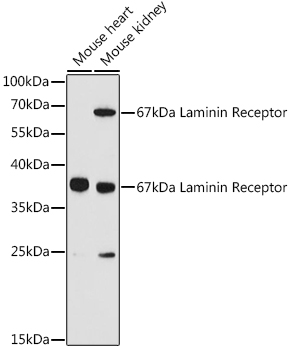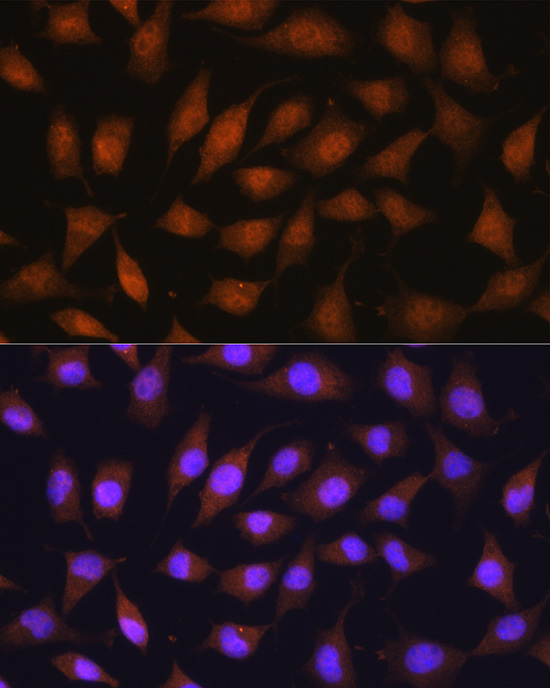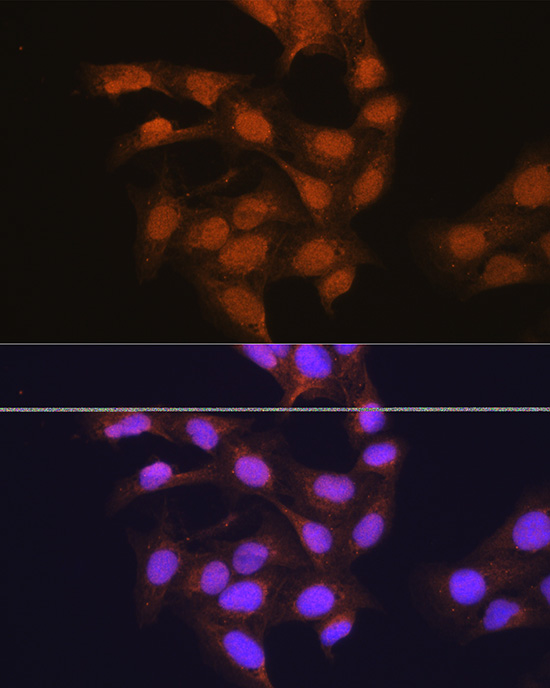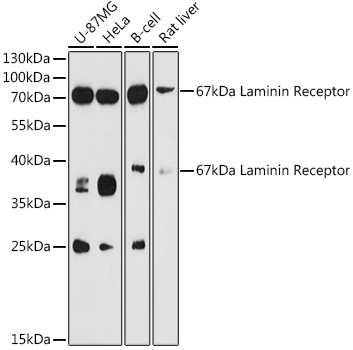Product Detail
Product NameRPSA Rabbit Polyclonal Antibody
Host SpeciesRabbit
ClonalityPolyclonal
IsotypeIgG
PurificationAffinity purification
ApplicationsWB,IF
Species ReactivityHuman,Mouse,Rat
Immunogen DescRecombinant fusion protein of human 67kDa Laminin Receptor (NP_002286.2).
ConjugateUnconjugated
Other NamesRPSA;37LRP;67LR;ICAS;LAMBR;LAMR1;LBP;LBP/p40;LRP;LRP/LR;NEM/1CHD4;SA;lamR;p40
Accession NoUniprot:P08865
GeneID:3921
Uniprot
P08865
Gene ID
3921
Calculated MW32kDa
Sdspage MW37KDa/67KDa
FormulationPBS with 0.02% sodium azide,50% glycerol,pH7.3.
StorageStore at -20˚C. Avoid freeze / thaw cycles.
Application Details
WB 1:500 - 1:2000
IF 1:50 - 1:200
Western blot analysis of extracts of various cell lines, using 67kDa Laminin Receptor antibody.
Immunofluorescence analysis of L929 cells using 67kDa Laminin Receptor Rabbit pAb.
Immunofluorescence analysis of U-2 OS cells using 67kDa Laminin Receptor Rabbit pAb.
Western blot analysis of extracts of various cell lines, using 67kDa Laminin Receptor antibody.
Laminins, a family of extracellular matrix glycoproteins, are the major noncollagenous constituent of basement membranes. They have been implicated in a wide variety of biological processes including cell adhesion, differentiation, migration, signaling, neurite outgrowth and metastasis. Many of the effects of laminin are mediated through interactions with cell surface receptors. These receptors include members of the integrin family, as well as non-integrin laminin-binding proteins. This gene encodes a high-affinity, non-integrin family, laminin receptor 1. This receptor has been variously called 67 kD laminin receptor, 37 kD laminin receptor precursor (37LRP) and p40 ribosome-associated protein. The amino acid sequence of laminin receptor 1 is highly conserved through evolution, suggesting a key biological function. It has been observed that the level of the laminin receptor transcript is higher in colon carcinoma tissue and lung cancer cell line than their normal counterparts. Also, there is a correlation between the upregulation of this polypeptide in cancer cells and their invasive and metastatic phenotype. Multiple copies of this gene exist, however, most of them are pseudogenes thought to have arisen from retropositional events. Two alternatively spliced transcript variants encoding the same protein have been found for this gene.
If you have published an article using product 55580, please notify us so that we can cite your literature.






 Yes
Yes



